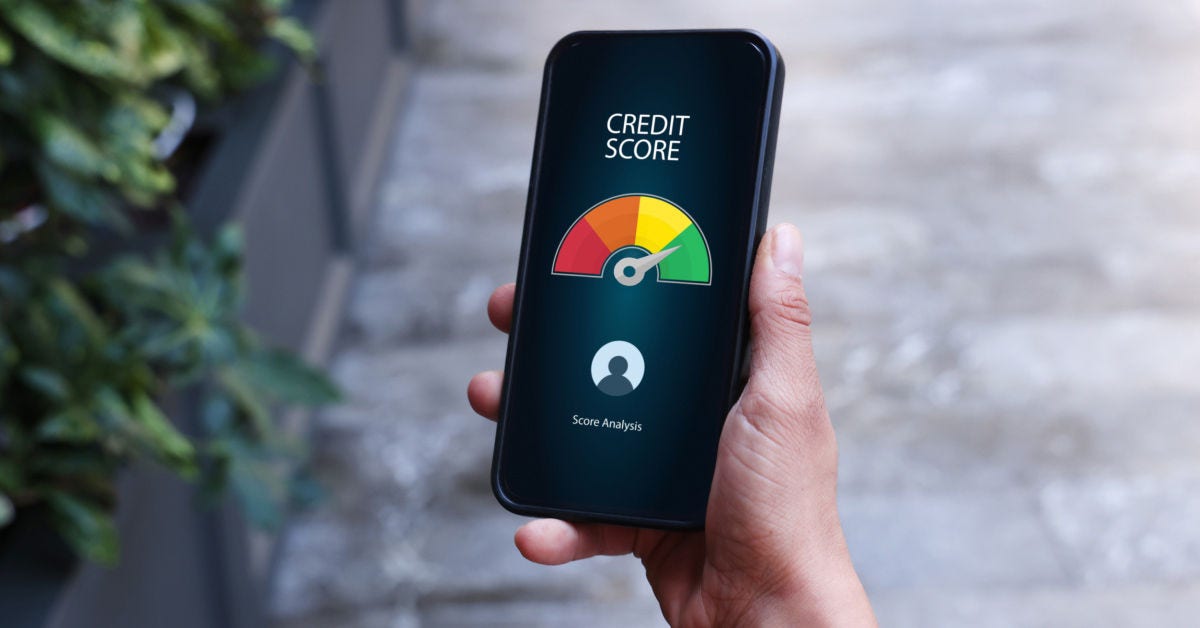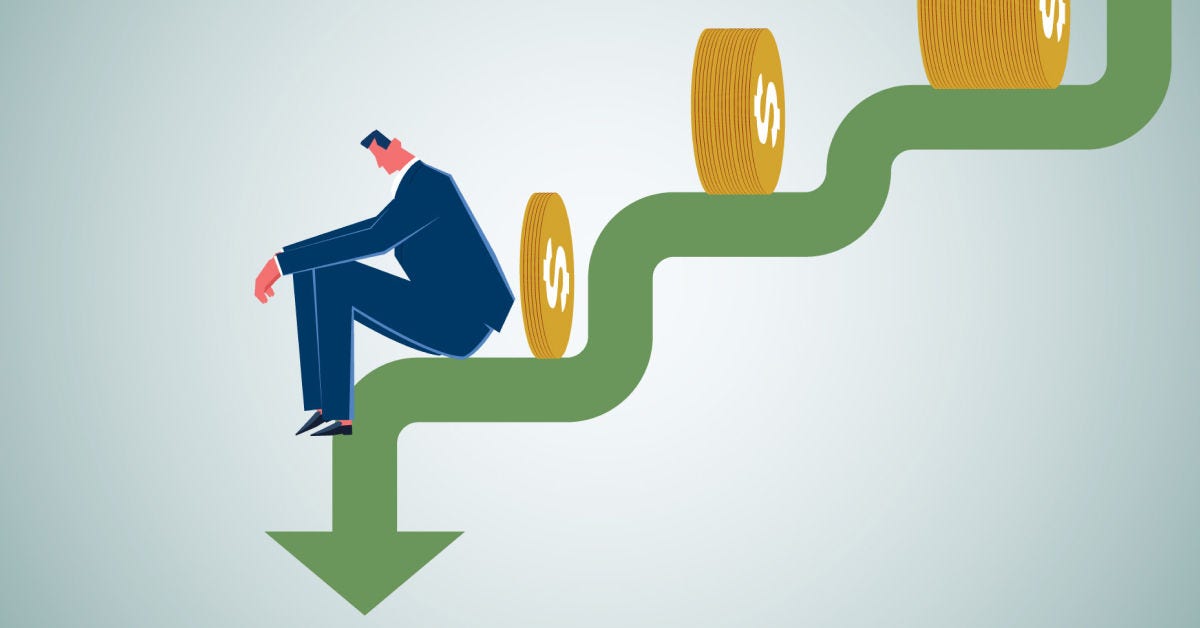Personal Loans
Customized financing to consolidate high-interest debt and unlock financial flexibility.
Business loans
Tailored commercial financing that supports all your business needs to help you grow quickly.
Tailored for entrepreneurs that want to establish additional active and passive income streams.
Customized financing to consolidate high-interest debt or fund major purchases or expenses.
About BHG
Programs
Sign in
Does Debt Consolidation Hurt Your Credit? Explained

Table of Contents
- What is debt consolidation?
- How BHG Financial debt consolidation loans differ
- What happens to your score when you consolidate?
- How debt consolidation can improve your credit score
- Key actions to maximize credit score benefits
- Common misconceptions about debt consolidation and credit
- How BHG can help strengthen your credit profile
- Check your rate
- Frequently asked questions
Consolidating high-interest credit card balances with a debt consolidation loan can help boost your credit score—often significantly—by lowering your revolving credit utilization and simplifying repayment.
Expect a brief, minor dip from the required hard inquiry at funding, but with balances paid down and cards kept open, many borrowers see a net improvement in a few short months as creditors update reported balances. This article explains how debt consolidation works, why many borrowers use it to improve their credit, and how a BHG Financial consolidation loan helps optimize finances.
Key Considerations
- Consolidating high-interest credit card balances with a personal loan for debt consolidation can improve your credit score by lowering your revolving utilization and simplifying debt repayment.
- BHG Financial’s debt consolidation loan helps high-income professionals streamline multiple bills into one manageable monthly payment, reduce financial pressure, and strengthen their long-term financial position.
What is debt consolidation and how does it work?
Debt consolidation is the process of combining multiple debts—often high-interest revolving balances like credit card balances—into a single installment loan, typically with a lower fixed rate and a single monthly payment. This new, consolidated structure simplifies debt repayment and reduces total interest paid over time.
Here’s how debt consolidation works:
- You prequalify with lenders to determine savings potential. Compare existing APRs against your debt consolidation offer—some debt types may not be worth consolidating if you can’t secure a lower overall rate.
- You apply for a debt consolidation loan sized to cover your current balances. You can choose to consolidate credit cards, high-interest personal loans, student loans, and medical bills.
- If approved, your loan funds are dispersed to you in a lump sum, and you use that money to pay off your creditors.
- You make one fixed monthly payment on the new loan until it’s fully repaid.
Borrowers choose consolidation because it delivers three advantages:
- Lower overall cost of debt: A fixed rate that’s often far below credit card APRs, for example, reduces the amount of interest you’ll pay over the life of your debt.
- Predictability: Fixed terms give you a clear payoff timeline.
- Simplicity: One payment and one due date create a more manageable financial routine.
Why it matters for credit scores
Paying off revolving credit can reduce your credit utilization ratio, one of the most influential factors in credit scoring models. Credit utilization—how much revolving credit you’re using compared to your total limits—accounts for 30% of your FICO® score.
When you consolidate your credit card balances with a personal loan, your card balances drop to zero, which dramatically reduces your revolving utilization. Your credit score may improve as creditors update their records to reflect the new, lower balances.
Plus, consolidating multiple debts into a single manageable payment helps you budget better by creating a clear, predictable repayment schedule and giving you a practical way to regain control of your finances.
Paying many creditors vs. making one payment
Managing several creditors at once is stressful—especially for high earners balancing demanding careers, businesses, and family responsibilities. Consolidating with a personal loan streamlines the process into one simple payment.
|
|
Managing multiple creditors |
Consolidating with a loan |
|---|---|---|
|
Number of due dates |
Several, hard to track |
One, easier to manage |
|
Interest rate |
Often variable, typically 20% on credit cards |
Fixed rate for predictability; typically 11% to 15% for prime borrowers |
|
Credit utilization |
Stays high until balances are paid off |
Drops quickly once balances are resolved |
|
Budgeting |
Complex and time-consuming |
Streamlined, one payment |
How BHG Financial debt consolidation loans differ
BHG Financial is built for high-income individuals who need more than just a standard personal loan. Our loans are ideal if you’re seeking flexible loan sizes, extended terms1, and a concierge-style experience that respects your time.
What sets BHG Financial apart:
- Large unsecured loan amounts: Borrow up to $250,0001 with fixed rates and terms up to 10 years,1,2 giving you the flexibility to consolidate all your balances at once (i.e., credit cards, existing personal loans, or both).
- Personalized service: U.S.-based loan specialists guide you from start to finish, keeping the process fast and efficient.
- Risk-free prequalification: You can check your personalized estimate in seconds with no impact on your credit score.3
- Holistic underwriting: Instead of relying solely on your credit score, BHG considers your full financial picture, including income streams, profession, and long-term goals.
BHG vs. a typical online lender
|
|
BHG Financial |
Typical lender |
|---|---|---|
|
Prequalification |
Soft inquiry, no score impact3 |
Typically soft inquiry, but may vary |
|
Loan size |
Up to $250,0001 unsecured |
Often capped at $100,000 |
|
Terms |
Up to 10 years, fixed1,2 |
Commonly 2–7 years |
|
Underwriting |
Holistic; considers income and professional potential |
Primarily credit score and DTI-driven |
|
Service |
Dedicated, U.S.-based specialists |
Dedicated, U.S.-based specialists |
What happens to your score when you consolidate?
Here’s what to expect when you apply for a consolidation loan with BHG Financial:
- Prequalification: Checking your personalized offer uses a soft pull, so your credit is unaffected.3
- Approval and funding: When you choose to move forward, a hard inquiry is added to your report. Many borrowers see a small, temporary dip here, but scores typically recover within a few months.
- Payoff: Once credit card balances are paid and creditors update your accounts, your revolving utilization drops significantly.
- Recovery: The positive impact of lower utilization and consistent payment behavior will reverse the temporary dip caused by the hard inquiry.
See your offer † real fast
Just a few easy steps to get prequalified!
† This is not a guaranteed offer of credit and is subject to credit approval.
How debt consolidation can improve your credit score
Debt consolidation helps your credit score in two primary ways:
1. It lowers your credit utilization and strengthens your credit profile
A major driver of credit scores is revolving utilization—the percentage of available credit you’re using. Lower utilization is better. Paying your credit cards to $0 often results in a substantial drop in utilization, which can support improved scores once your creditors report the new balances.
Keeping your credit cards open helps maintain that improved utilization rate. While carrying a very small balance occasionally is fine, regularly building new revolving balances can reverse your progress.
Here’s an example:
|
|
Total card limits |
Balances |
Utilization |
|---|---|---|---|
|
Before consolidation |
$50,000 |
$37,500 |
75% |
|
After paying cards to $0 |
$50,000 |
$0 |
0% |
|
After keeping cards open and avoiding high balances |
$50,000 |
$0–$2,500 |
0%–5% |
2. It simplifies debt repayment and helps you stay on track
Payment history makes up 35% of your FICO Score. A single fixed payment is easier to manage than several due dates across multiple creditors. When your repayment schedule is streamlined, it’s easier to stay consistent, which helps you avoid missed or late payments that can negatively affect your score.
Key actions to maximize credit score benefits
Once you consolidate, these steps can help you protect and improve your credit score:
- Keep credit cards open after paying them off: Closing accounts reduces available credit and drives utilization back up.
- Keep credit cards open after paying them off: Closing accounts reduces available credit and drives utilization back up.
- Pay on time, every time. Payment history is the single most important factor in most scoring models (35% in FICO), so set up autopay and reminders to avoid missing payments.
- Monitor your credit: Verify that payoff updates appear correctly and dispute any errors promptly.
- Allocate improved cash flow wisely: A lower monthly payment can give your budget breathing room. You can use that flexibility to make occasional extra payments on your loan, increase your savings, or contribute more to high-yield accounts or retirement goals.
Common misconceptions about debt consolidation and credit
“Debt consolidation always hurts your credit score.”
Reality: A brief dip from a hard inquiry is normal, but paying down revolving balances usually helps scores over time by lowering utilization and improving payment consistency.
“All lenders treat prequalification the same.”
Reality: Processes vary. BHG Financial begins with a soft credit inquiry (no score impact)3 and performs a hard inquiry only at funding. This allows you to compare offers risk-free and choose the right solution for you.
“Closing credit cards after payoff is required.”
Reality: You do not have to close your accounts. In fact, keeping paid-off accounts open is usually better because it preserves your available credit and helps build credit history.
“Debt consolidation is only for people in financial trouble.”
Reality: High earners frequently use consolidation to get organized, reduce interest costs, and improve cash flow. With large limits and long terms1, BHG Financial’s personal loans for debt consolidation are designed for professionals who value efficiency and control.
How BHG can help strengthen your credit profile
Debt consolidation is one of the most practical ways to streamline your finances. By lowering high-interest balances, reducing revolving utilization, and replacing multiple bills with one predictable payment, you set yourself up for better credit health and a stronger financial foundation.
If you're ready for a simpler, more strategic approach to managing debt, explore your options with BHG today.
Check your rate
See your offer † real fast
Just a few easy steps to get prequalified!
† This is not a guaranteed offer of credit and is subject to credit approval.
Frequently asked questions
Can a debt consolidation loan improve my credit score?
Yes. Reducing your revolving credit card balances can lower your utilization ratio, which is one of the most influential factors in your credit score. A predictable monthly payment also makes it easier to maintain a strong payment history.
How quickly can I see a credit score increase after consolidating debt?
Many borrowers notice changes within one to two billing cycles after card issuers report updated balances. Timing varies based on each creditor’s reporting schedule.
Will applying for a debt consolidation loan hurt my credit score?
A hard credit inquiry at funding may cause a small, temporary decrease, often under 10 points for many borrowers. BHG Financial’s process starts with a soft pull (no impact)3 and only triggers a hard inquiry if you choose to fund—minimizing short-term effects.
What happens if I miss payments on my debt consolidation loan?
Missing payments can harm your credit and may lead to higher balances on other accounts if you begin relying on credit cards again. Set up autopay and reminders to stay on track.
Does consolidating debt affect my ability to get new credit?
Temporarily, yes: a hard inquiry and new obligation can factor into lending decisions. However, your profile may strengthen after your utilization falls, and your credit stabilizes.
Recommended articles

Debt Consolidation
When to Pay Credit Card Bill to Increase Credit Score
August 28, 2025 | 7 min read

Debt Consolidation
Can Debt Consolidation Improve Your Credit Score?
December 10, 2025 | 7 min read

Personal Loans
Low on Liquidity, High on Credit? Here’s a Financial Move Worth Considering
November 17, 2025 | 6 min read

Debt Consolidation
Why the Most Affluent People Avoid High-Interest Debt (And How You Can Too)
April 18, 2025 | 8 min read

Debt Consolidation
Less Stress, More Control: The Emotional Payoff of Debt Consolidation
October 9, 2025 | 6 min read

Debt Consolidation
Debt Consolidation in a High-Rate Economy: Is It Still Worth It?
September 2, 2025 | 7 min read
Not all solutions, loan amounts, rates or terms are available in all states.
1 Terms subject to credit approval upon completion of an application. Loan sizes, interest rates, and loan terms vary based on the applicant's credit profile.
2 Personal Loan Repayment Example: A $60,000 personal loan with a 7-year term and an APR of 17.06% would require 84 monthly payments of $1,191.38.
3 There is no impact on your credit for applying. For personal loans, a complete credit history, which will appear as an inquiry on your credit report, will be performed upon acceptance and funding of the loan and may impact your credit.
Consumer loans funded by Pinnacle Bank, a Tennessee bank, or County Bank. Equal Housing Lenders.
No application fees, commitment, or impact on personal credit to estimate your payment.
For California Residents: BHG Financial loans made or arranged pursuant to a California Financing Law license - Number 603G493.